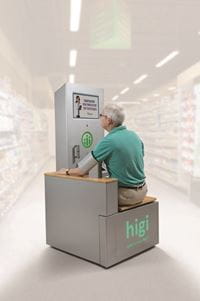Keep Calm and Check Your Blood Pressure
 You’re stuck in traffic and already late with a full day of meetings awaiting you at the office – and you can feel your stress level rising. While stressful moments like this might briefly increase your blood pressure, could they lead to problems with high blood pressure over time? Researchers are still studying whether stress and high blood pressure, or hypertension, are linked, and so far, they haven’t found a connection between the two. The Mayo Clinic notes that other behaviors related to stress might cause high blood pressure, including lack of sleep, drinking alcohol and overeating.
You’re stuck in traffic and already late with a full day of meetings awaiting you at the office – and you can feel your stress level rising. While stressful moments like this might briefly increase your blood pressure, could they lead to problems with high blood pressure over time? Researchers are still studying whether stress and high blood pressure, or hypertension, are linked, and so far, they haven’t found a connection between the two. The Mayo Clinic notes that other behaviors related to stress might cause high blood pressure, including lack of sleep, drinking alcohol and overeating.
It’s important to keep track of your blood pressure, and you can do that the next time you stop by your neighborhood Publix pharmacy. Visit a BayCare Wellness Station in a store near you for free biometric screenings that include pulse, blood pressure, weight and body mass index.
High blood pressure is harmful because it makes your heart and blood vessels “work harder and less efficiently,” according to the American Heart Association, which adds that the friction and force of high blood pressure can damage the inside of your arteries and lead to serious conditions if not treated.
The organization has recommendations for healthy blood pressure ranges (for example, 120mm Hg/80mm Hg)*. The upper number is systolic pressure, which happens when blood is pumped out of your heart and into your arteries. The lower number is diastolic pressure, which occurs as your heart is resting between beats. The following five ranges cover healthy and unhealthy blood pressure:
- Normal: Systolic is less than 120mm Hg and diastolic is less than 80mm Hg
- Prehypertension: Systolic is 120-129 or diastolic is less than 80
- High blood pressure (hypertension) stage 1: Systolic is 130-139 or diastolic is 80-89
- High blood pressure (hypertension) stage 2: Systolic is 140 or higher or diastolic is 90 or higher
- Hypertensive crisis (call 911 for emergency care): Systolic is higher than 180 or diastolic is higher than 120
While researchers haven’t found a link between stress and high blood pressure, you can take steps to improve your health by exercising and managing your stress, according to the Mayo Clinic, which suggests the following:
- Exercise three to five time per week for at least 30 minutes.
- Take slow, deep breaths to relax.
- Review and streamline your schedule.
- Get enough sleep.
- Adjust your perspective about problems by complaining less and focusing more on solutions.
- Try meditation and yoga.
Consult your health care provider if you have concerns about your blood pressure. To request a physician referral. call 1-800-BayCare or find a doctor near you.
*There is considerable controversy about blood pressure ranges. You should speak with your physician about what your optimal blood pressure range should be.
